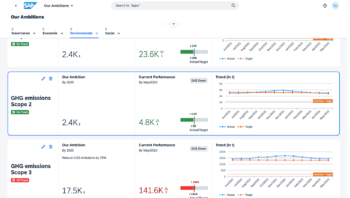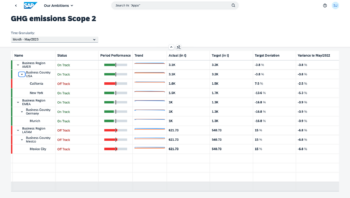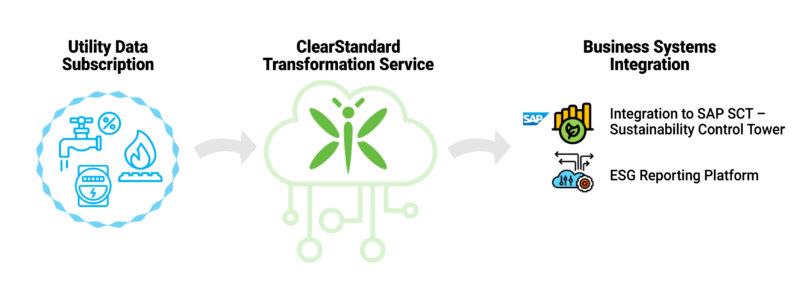The ABCs of ESG
Environmental, social, and governance (ESG) reporting is a framework used by businesses to communicate their performance in three key areas: environmental impact, social responsibility, and corporate governance.
Firstly, environmental reporting focuses on a company’s impact on the environment, including its efforts to reduce carbon emissions, manage waste, and conserve resources. This aspect of ESG reporting provides stakeholders with insights into how the company is addressing environmental challenges and contributing to sustainability.
Secondly, social reporting encompasses the company’s initiatives and activities related to social responsibility, such as diversity and inclusion, labor practices, community engagement, and contribution to social welfare. This aspect highlights the company’s commitment to ethical business practices and its role in promoting social well-being.
Lastly, governance reporting involves transparency and accountability in the company’s decision-making processes, board structure, executive compensation, and compliance with regulations. It provides stakeholders with an understanding of the company’s leadership, ethics, and commitment to upholding high standards of corporate governance.
ESG reporting serves as a tool for companies to disclose their non-financial performance to investors, customers, employees, and other stakeholders. By providing a comprehensive view of the company’s impact on the environment, society, and governance practices, ESG reporting promotes transparency, accountability, and sustainability in business operations. Moreover, it enables stakeholders to make informed decisions, encourages responsible investment, and drives positive change towards a more sustainable and equitable future.
The role of utility data in ESG reporting
Utility data is crucial for ESG reports because it provides a direct measure of a company’s environmental impact, particularly in terms of energy consumption, greenhouse gas (GHG) emissions, water usage, and waste management.
Electricity and natural gas consumption data allow companies to quantify their energy consumption. This data is necessary to calculate GHG emissions, a significant component of a company’s carbon footprint. Accurate measurement of these emissions is critical for assessing the company’s environmental impact and identifying opportunities to reduce emissions.
Many regions have regulations requiring companies to report their environmental impact, including energy consumption and GHG emissions. Utility data is essential for complying with these regulations. Accurate and comprehensive utility data ensures that companies meet legal requirements and avoid penalties.
Utility data provides a baseline for setting and tracking sustainability goals. By understanding current energy use and emissions, companies can set realistic targets for reducing their environmental impact. Progress toward these goals can be monitored over time using utility data, which helps evaluate the effectiveness of sustainability initiatives and strategies.
Utility data is indispensable for ESG reporting as it provides the quantitative foundation for assessing a company’s environmental impact. Accurate and comprehensive utility data ensures regulatory compliance, supports sustainability goals, enhances transparency, improves operational efficiency, enables benchmarking, aids in risk management, and strengthens investor relations. Utility data is the backbone of meaningful and effective ESG reporting.
Above: utility data integrated into SAP Sustainability Control Tower allows companies to report their progress on the overall reduction of scope 2 GHG emissions as well as to drill down and track facility-level performance in detail.
Automating data collection for ESG reporting
Unfortunately, collecting utility data and transforming it into standardized formats is a manual process prone to human errors. An individual may be tasked each month with downloading the invoices for several facilities from multiple suppliers for different kinds of energy carriers, scraping the data, and then typing it into standardized Excel files or ESG software.
ClearStandard streamlines the collection process by hooking up your business systems to data feeds directly from your utility accounts. Moreover, you can improve the specificity of your reporting because ClearStandard lets you map meters to production lines for more accurate and timely consumption data which in turn provides more precise GHG calculations.
Is ClearStandard right for you?
With thousands of utility accounts available for streaming electric, natural gas, and water usage data, it’s likely ClearStandard has you covered. Go ahead and search our database of providers or contact us for demo.
Greatest challenge with ESG data
Deloitte. ESG executive survey: Preparing for high-quality disclosures. March 2022. n=300 (finance, accounting, sustainability, and legal executives).
Reliable data is at the heart of tracking performance. ClearStandard addresses executives’ ESG data concerns in a single centralized platform.






